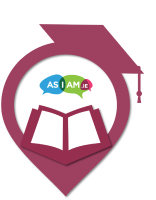In college, there is almost always a service you can go to or a person you can approach in order to have any query answered or worry subdued. However, to fully avail of your entitlement to these supports, it is integral to take personal responsibility to reach out and access them. Self advocacy is a skill that you will rely on throughout much of your third level life; whether in relation to connecting with disability or counseling services, reaching out to your lecturers, or participating in group projects, you will likely rely on self advocacy to ensure your voice is heard. At first, speaking up for yourself may seem anxiety-provoking and stressful, but like any skill, it is best developed through practice and time.
Engage with your Disability Support Office
Reaching out to your University’s Disability Support Office is the first and perhaps most important step of self advocacy you will take in your third-level life. If you have applied to your college or institution through DARE or otherwise outlined your disability in the application process, it is likely that the Disability Support Office will approach you in the first few weeks of term. In the initial registration meeting, you might be assessed for reasonable accommodations and designated a Disability Support Officer; this will be the person in the service that you most regularly engage with. The Disability Support Office is there to assist you throughout your academic endeavors, it is your responsibility to reach out when you are in need of that assistance. Hence, it is important to note that following your registration it may be up to you to initiate further communication with your support office.
Although the most important step is to reach out, it can be just as fundamental to act as your own advocate whilst you are actively engaging with these services. This can be accomplished by speaking honestly with your Support Officer. Resist the urge to dismiss your worries and disclose what is challenging you, your Support Officer will work with you to find constructive solutions. Remember that the Disability Support Office, like any other college support service, exists to help you; by thoroughly engaging with these resources you are optimising what you will get out of them.
Approaching your Lecturer
There are many situations in which you may need to approach a lecturer. Whether to seek clarification on the content of a lecture or request an extension to an assignment, asking these questions is an essential part of self advocacy. It may be an intimidating thought, but lecturers are not intimidating people; they are simply individuals who are passionate about a subject and their objective is to help you understand their teachings. Most lecturers will highlight how they best receive questions in the first few classes of their module. This may be via email, phone call or in person at the end of a class. When using email, it is important to remember that a lecturer may have enquiries from hundreds of students all concerning different topics, so do not worry if you do not receive an immediate response. If you are registered with the Disability Support Office and qualify for special exam conditions, it may be up to you to notify your lecturer (if this is the case, you should be informed by your Disability Officer). Aim to give notice of your accommodations at least one to two weeks in advance of the exam so that your lecturer has sufficient time to put them into place for you.
Working in a Group
Self advocacy is also about standing up for your ideas and beliefs. Depending on your course, group projects may account for a large percentage of your college assessments. You will not often find yourself in a group dynamic where everyone is in perpetual agreement. Instead, you will likely be working with a diverse team of people, each who bring their own distinct approach to the task. This means that it is important for every group member to be the advocate of their own ideas; it is the ideas of all the members collectively that help shape the narrative of the assignment. While asserting your own opinion does take an element of confidence, this is a confidence that will naturally develop as you continue to partake in group projects and grow accustomed to their workings.
In summary, self advocacy is about knowing your rights, identifying your support systems and taking the initiative to ask for help when you need it. This is an empowering process. When you begin to understand your needs and how you can best communicate them, you are not only solving specific issues relevant to your college life, you are learning to represent yourself and your interests. This is an indispensable skill which will continue to stand to you long after you have completed your studies.
